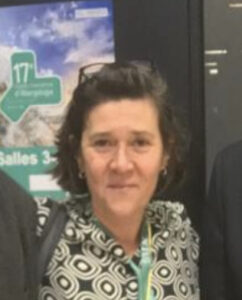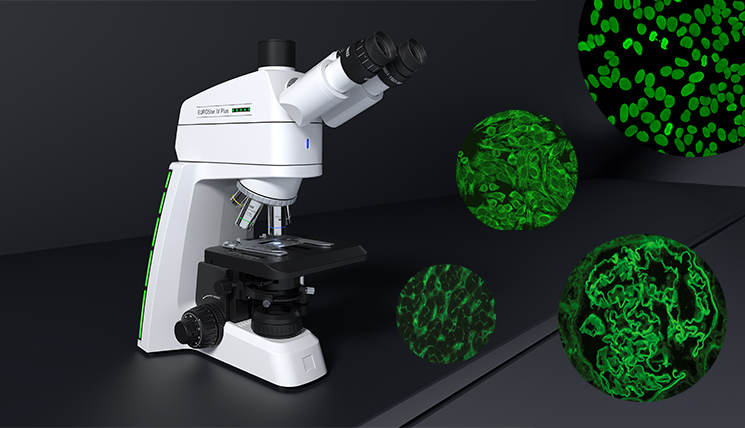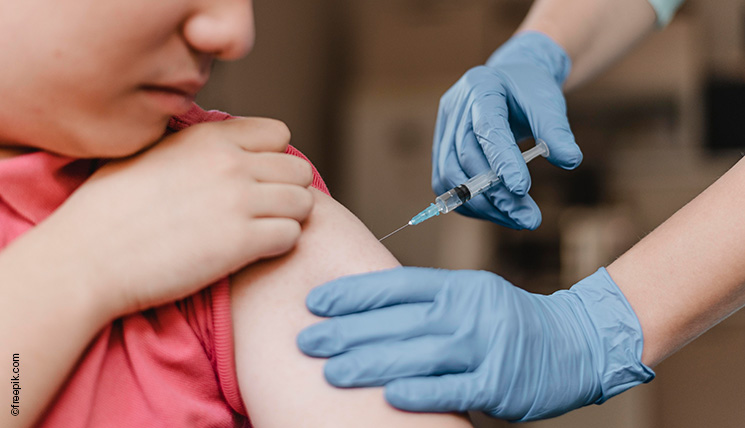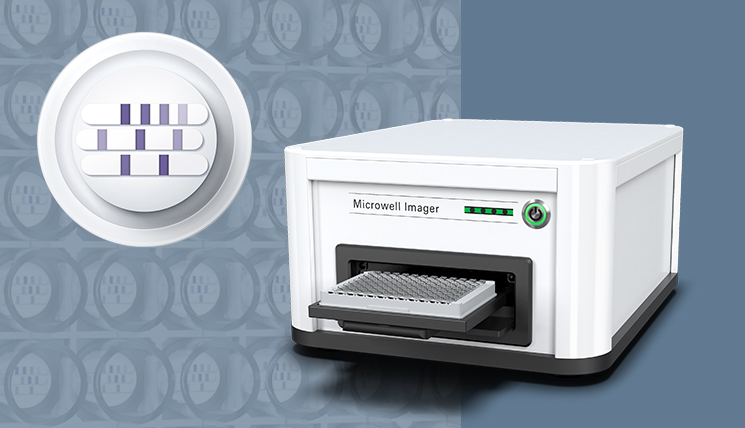Embark on a new journey with us.
To build a trusted partnership for reliable and easy allergology with the IDS-iSYS.
 Experiences of Dr. Caroline Klingebiel, a clinical pathologist and allergologist at the laboratory group SYNLAB Provence as well as a member of the scientific council and coordinator of the allergy biology group of the Société Française d‘Allergologie.
Experiences of Dr. Caroline Klingebiel, a clinical pathologist and allergologist at the laboratory group SYNLAB Provence as well as a member of the scientific council and coordinator of the allergy biology group of the Société Française d‘Allergologie.
SYNLAB Provence is a relatively young biomedical laboratory group, which was created by the merger of Seldaix and Mazarin in 2018 and is led by CEO Dr. Sofiane Benhabib. The group consists of 66 laboratories for biomedical analyses in the three French departments of Bouches-du-Rhône, Vaucluse and Alpes-de-Haute-Provence. In addition to 66 CPAs (centres péri-analytiques), it includes 3 diagnostic laboratories (Rabattu and Clinique Vert Coteau in Marseille, Hôpital Privé de Provence in Aix-en-Provence) and 3 STAT laboratories (Aubagne, Sorgues, Manosque).
SYNLAB Provence has medical centres of excellence in complex fields such as infectious diseases, assisted reproductive technology, allergology and haematology/oncology. On average, 6000 patient files are processed every day by the company’s strong team of clinical pathologists, laboratory technicians, phlebotomists, nurses, secretaries, IT staff and staff for supporting services such as couriers, HR staff and accountants.
Dr. Klingebiel wants to establish a reference laboratory. For the past two years, the iSYS has been evaluated at the laboratory Montgrand. Tests for the allergen families dairy, weeds, mites and nuts have been performed on the instrument – with satisfying results.
Dr. Klingebiel, why have you decided to work with IDS? How would you describe the collaboration?
Our first contact was at the world allergy congress in Lyon in December 2019 (WAC 2019). The aim of this first meeting was to receive a presentation of the automated system iSYS for immunoanalysis and to find out about the range of available allergen extracts. I immediately became interested in testing this new automated system for allergy diagnostics and to perform studies to compare it with the traditional ImmunoCap technology from Phadia.
IDS quickly proposed to provide us with an iSYS and to support our evaluation process. Everything else went perfectly from there. We were excited to get to know this provider in the area of chemiluminescence and we were met with a competent, professional and friendly team.
The first results for specific IgE were very convincing and indicated a high reagent/product quality. We were quickly able to present these results in the form of posters and oral presentations at different national and European allergology congresses.*
For nearly four years now, we have been working with a reliable IDS team that is always ready to help. We have been able to build a trusting partnership.
How was the implementation process for the new system?
A team supported us with the installation of the instrument and the training of staff to enable them to use the iSYS independently. In the first year, a young laboratory technician studying for a sandwich degree could take the training and present her final project on the validation of methods on this instrument. She was accompanied in the different evaluations for the optimisation of the processing times and received support from the hotline and customer service of IDS. Subsequently, we were able to receive further training on the instrument and a medical biology intern was able to work with the instrument and write his thesis on method validation in allergology using the iSYS.
Which characteristics and benefits of the system do you consider to be the most important?
The easy operation, reliability, rapid availability of results (25 min) and especially the possibility to program automatic dilutions for results above the measurement range undeniably make the iSYS an excellent analysis system. In addition, it is compact and fits into any laboratory.
Thank you, Dr. Klingebiel, for sharing your experiences with the IDS-iSYS for allergology with us.
Find out more about our journey together, our allergy ChLIAs and the matching solution IDS-iSYS!
*
- Assessing cow’s milk allergy and molecular profiles in the clinical lab with a chemiluminescence-based method. Sereme Y., Vitte J., Klingebiel C. Congrès annuel European Academy of Allergy and Clinical Immunology, London 2020, United Kingdom
- Comparison of two serum IgE specific assays in grass pollen sensitization. Sereme , L. Kiyici, J. Vitte , C. Klingebiel. Congrès annuel European Academy of Allergy and Clinical Immunology, London 2020, United Kingdom
- Comparaison de deux tests immunologiques pour la recherche et le dosage d’IgE spécifiques. Klingebiel C., Sereme Y., Kiyici L., Vitte J. 2021, Congrès Francophone d’Allergologie, Paris, Frankreich
- Comparison of three serum IgE specific assays in cashew sensitization. Bilir R., Vitte J., Klingebiel C. Congrès annuel European Academy of Allergy and Clinical Immunology, Prague 2022, Czech Republic
- House dust mite and cow’s milk specific IgE higher than the manufacturer’s range: Linearity assessment and comparison of three immunoassay platforms. Philippe R., Bilir R., Vitte J., Klingebiel C. Congrès annuel European Academy of Allergy and Clinical Immunology, Prague 2022, Czech Republic
- Grass, peanut and egg specific IgE higher than the manufacturer’s range: Linearity assessment and comparison of two immunoassay platforms. Philippe R., Bilir R., Vitte J., Klingebiel C. Congrès annuel European Academy of Allergy and Clinical Immunology, Prague 2022, Czech Republic






